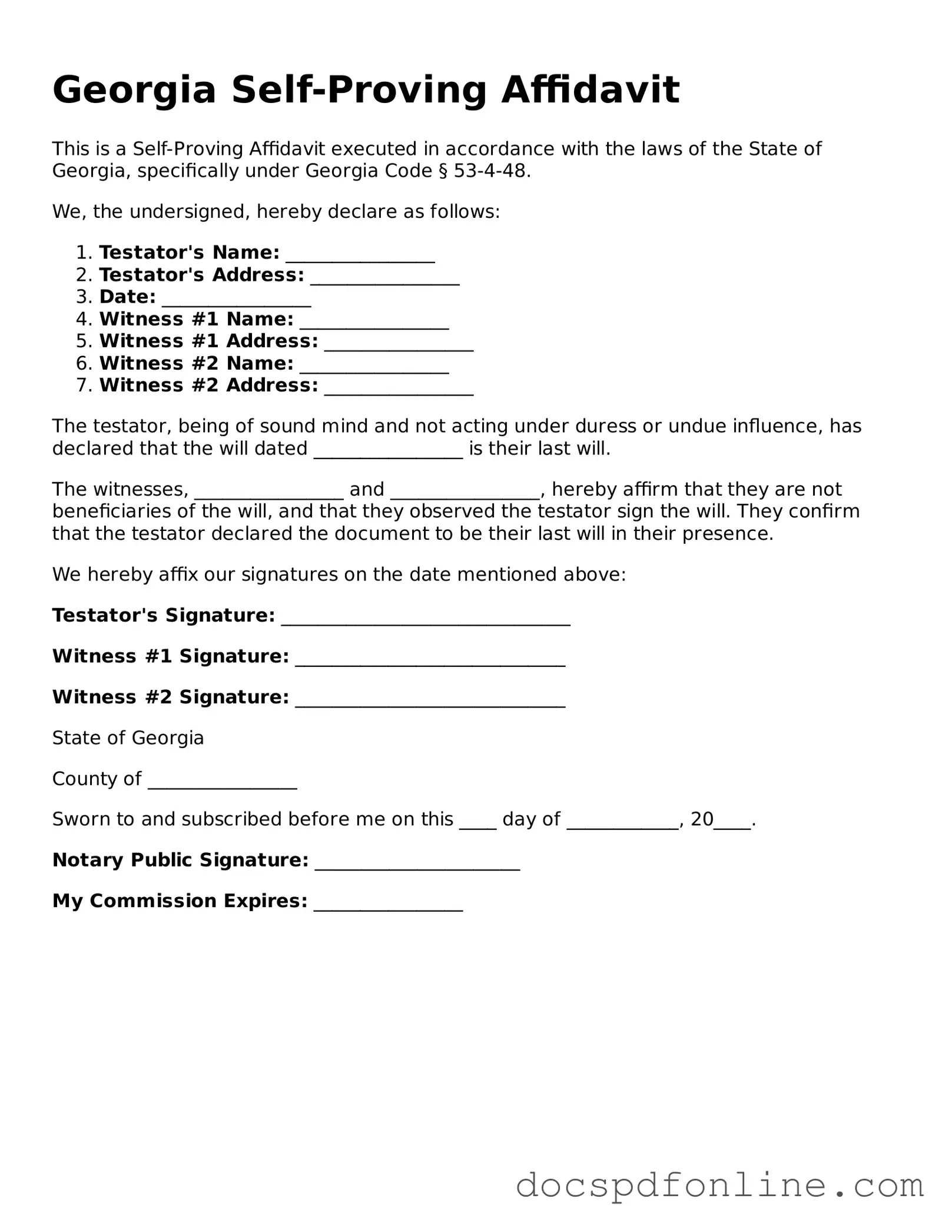Legal Self-Proving Affidavit Template for Georgia
The Georgia Self-Proving Affidavit is a legal document that allows a testator's will to be validated without the need for witnesses to appear in court. This form simplifies the probate process, ensuring that the will can be accepted more efficiently. By executing this affidavit, individuals can affirm the authenticity of their wills, providing peace of mind for their loved ones.
Launch Editor Now

Legal Self-Proving Affidavit Template for Georgia
Launch Editor Now
Save time — finish this form fast
Finish Self-Proving Affidavit online — edit, save, download made easy.
Launch Editor Now
or
↓ PDF File
